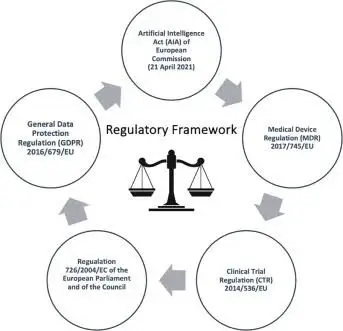GPs Using Unapproved AI Raise Alarm Bells
Across the UK, some general practitioners have started using unapproved AI-powered tools to record and summarise patient interactions—prompting fresh concerns over medical privacy breaches and regulatory lapses. NHS England has now issued a strong caution, urging clinicians to avoid any AI technologies that don’t meet official standards.
Although the health system supports the use of accredited AI platforms like Ambient Voice Technology (AVT) to ease administrative strain, internal communications from NHS leadership underscore the risks posed by unauthorised alternatives. These tools might be missing critical protections, risking both patient trust and the security of confidential medical information.

Unapproved AI Use in Healthcare Raises Alarms Over Patient Privacy ( Image Source: MedPage Today )
Push for AVT Faces Regulatory Barriers
Earlier in the year, NHS England had encouraged trials of AVT systems designed to help clinicians cut down on note-taking and paperwork. However, a more recent internal update—dated 9 June—raised flags about several AI platforms currently in use that do not align with AI software regulation requirements in the medical sector.
These non-compliant tools could compromise not only clinical quality and data security, but also open NHS institutions up to legal liabilities and fragmented system performance.
Growing Concerns Around Privacy and Inaccuracy
The adoption of AI for documenting medical appointments is gaining popularity, but not without challenges. While some health professionals see AI note-takers as a breakthrough, critics warn about doctor-patient confidentiality being compromised.
Several foreign platforms like ChatEHR in the United States obtain clear patient consent and allow doctors to review and verify AI-generated summaries. However, in the UK, similar safety nets are not guaranteed with many unauthorised tools. Experts have even raised red flags about the risk of “hallucinated” content—fabricated information appearing in records—which could potentially jeopardise a patient’s care plan.
Workload Relief vs Ethical Responsibility
There’s no denying that AI can dramatically lighten the workload for overburdened GPs. But experts stress the importance of understanding the limitations of such tools. According to the British Medical Association, some doctors are adopting technologies they don’t fully comprehend—raising red flags around data protection and informed use.
While AI can help record consultations more efficiently, it must never come at the cost of patient confidence or accurate documentation.
Mistakes Overseas Point to Broader Risks
International experiences mirror the UK’s growing concerns. In Australia, the use of AI scribes in clinics has led to critical transcription errors—such as misdiagnosed conditions and false symptom entries. As a result, medical authorities have mandated strict patient consent and the requirement for clinicians to verify every AI-generated note before it becomes part of the record.
These examples make it clear: AI tools in healthcare need firm governance before they can be considered safe for widespread adoption.
NHS Under Pressure to Strengthen Oversight
Although NHS England has released baseline criteria for acceptable AI tools, it has not yet published a list of certified providers. This leaves individual practices in a grey area, where they must navigate a complex and evolving tech space without clear guidance.
Health tech analysts say that without stronger direction and tighter regulation, the widespread use of unvetted tools could fragment NHS digital systems and increase exposure to data security threats.
Also Read: Human-AI Collaboration Redefines the Future of Work in Indonesia
Ethics, Innovation, and the Patient’s Right to Privacy
This debate strikes at the heart of ethical concerns surrounding AI use in healthcare. While innovation is important, it must be balanced with transparency, consent, and accountability.
Global frameworks already exist to ensure AI is used responsibly in medicine, emphasising that any AI tool must be built on a foundation of safety, verifiability, and user trust. If these pillars are not met, patient care could suffer—and so could the public’s confidence in healthcare institutions.

AI in healthcare demands ethics—privacy and consent come first ( Image Source: ScienceDirect )
Key Next Steps for the NHS
To regain control and ensure patient protection, experts suggest the NHS take the following actions:
- Halt the Use of Unapproved AI
Clinicians should immediately pause the use of any tools that fail to meet national compliance standards. - Mandate Clear Patient Consent
Doctors must fully inform patients about how AI tools work, and obtain documented consent before use. - Provide an Approved Vendor List
The NHS should publish a formal register of AI systems that meet GDPR, ISO, and NHS-specific security benchmarks. - Offer Targeted Training
GPs and practice staff should receive practical training on how to properly implement and supervise AI systems during care delivery.
Final Thoughts: Trust Must Come First
There’s no doubt that artificial intelligence has the potential to transform healthcare for the better—reducing burnout, improving efficiency, and freeing up time for patient care. However, innovation without proper oversight can lead to serious consequences.
The issue of unapproved AI in healthcare isn’t just about cutting-edge tech; it’s about protecting trust, data, and human wellbeing. Patients must know that their conversations and conditions are being recorded ethically, securely, and with precision.
As NHS digital systems evolve, leadership must ensure that every tool introduced into patient care serves people first—and never compromises their safety or rights.

